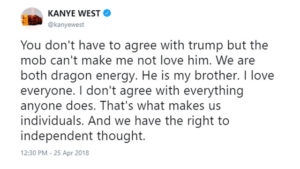Ever since I was little, I’ve been pretty particular about the spaces that I live in. For my 12th birthday, my parents took me to Ikea and Target and let me “re-do my room” with a New York theme. I can also vividly remember the time when my Mom and I went to tour a college in Upstate New York and we almost left the hotel because we were worried about bed bugs. This particularness caused a lot of stress before going off to college about having to share a room with another teenage boy (a personal nightmare for me).
As I am entering the workforce, I know that this will carry over into the office that I work in. On average, a person will spend about ⅓ of their life at work. That’s longer than most of us will spend at any house we will ever live in! Since I’ve started interning, I’ve noticed some things that have made a big impact on my happiness and productivity at work:
1. Drink Machines: I am drinking water CONSTANTLY and I know that almost everyone sitting around me has a water bottle or cup at their desk. Having a water machine, like a Brita filter attachment or a Bevi machine, is more important to me than having elaborate coffee makers or nice vending machines. (editor’s note – the apple doesn’t fall far from the tree – I’m a life-long advocate for a Diet Mt. Dew soda fountain in the office!)
2. No Cubicles: I didn’t anticipate this making such a difference, but I now do not want to work in a cubicle. At Quicken Loans (where I’m interning!), we have little half walls that make rows and columns, but they are short enough to see and talk to the people around you. This creates a much more open environment so I can ask questions without getting up or I can eavesdrop on other people’s conversations!
3. Bathrooms: Read my last post for more of my feelings about bathrooms at work but basically, just make them nice.
4. Updated Decor: I get that office decor is difficult. You’re never going to please everyone’s tastes, it’s expensive etc. BUT you could at least put in a little bit of effort to put some decor on your walls that is from this century. A good rule of thumb: if your decor is older than some of your employees, you probably should get rid of it! There’s nothing sadder to me than being surrounded by gray all the time. Liven it up a little!
Now, I could go on for a while about what else I look for in an office, but these are just the basics. Just put a little effort to meet your employee’s requests, and you’ll probably be on the right track!
Another Editor’s Note (because apparently, I don’t have my own platform to say anything I want): I’ve been telling HR leaders this for a couple of years now. With Gen Z – Design matters! It matters in your employment brand, it matters in your personal workspaces, it matters for younger generations. Perception of working in a great place is influenced by design. Don’t discount it!
This post was written by Cameron Sackett (not Tim) – you can probably tell because it lacks grammatical errors!
HR and TA Pros – have a question you would like to ask directly to a Gen Z? Ask us in the comments and I’ll respond in an upcoming blog post right here on the project. Have some feedback for me? Again, please share in the comments and/or connect with me on LinkedIn.


